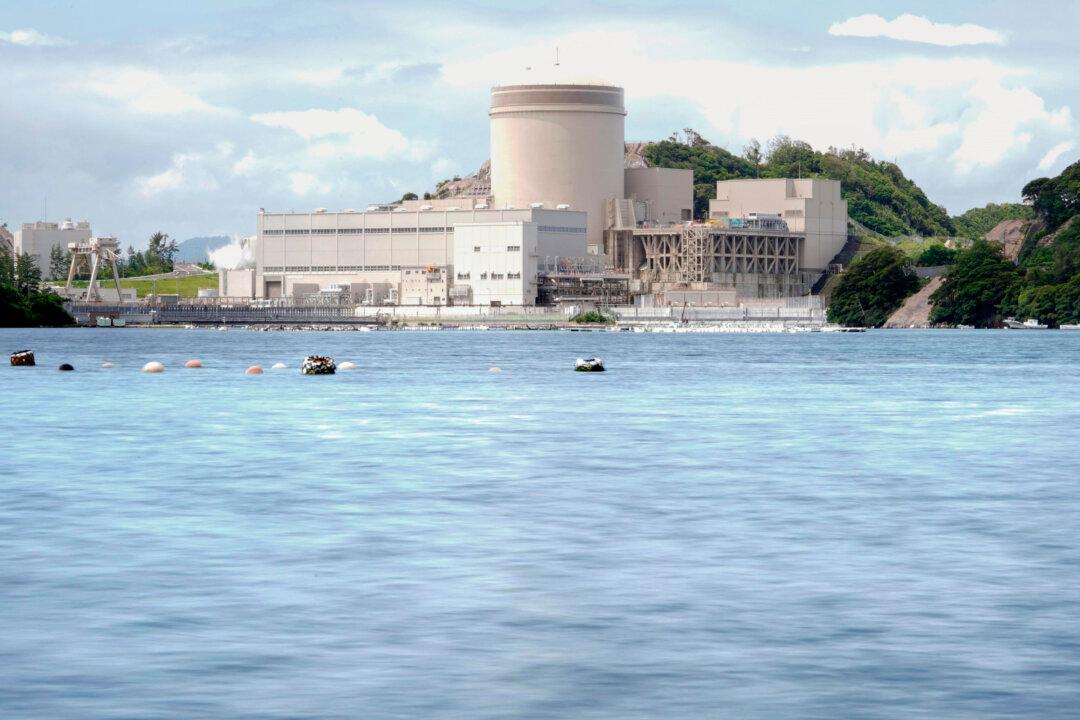TOKYO—A more than 40-year-old nuclear reactor in central Japan which suffered a deadly accident has resumed operation after being taken offline for a decade after the March 2011 Fukushima nuclear disaster, as Japan pushes to meet its carbon emissions reduction goal.
Kansai Electric Power Co. said the Mihama No. 3 reactor in Fukui prefecture went back online Wednesday after workers removed control rods inside the reactor.





